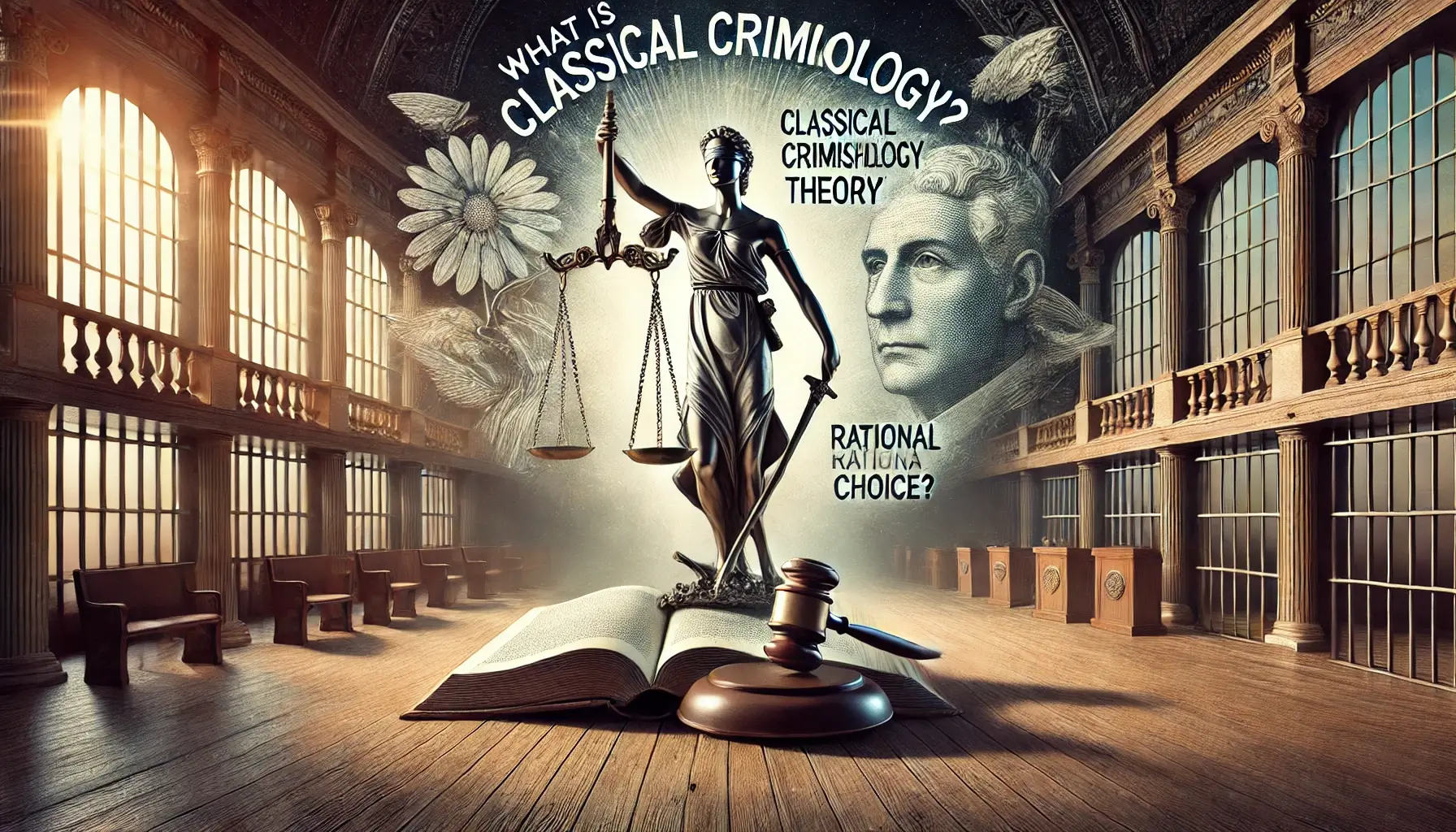What Is Classical Criminology Theory?
Introduction to Classical Criminology Theory
Classical criminology theory is a framework in criminology that emerged in the 18th century as a response to arbitrary and harsh criminal justice systems. It is based on the principles of free will, rational choice, and deterrence. This theory emphasizes that individuals commit crimes as a result of rational decision-making, weighing the costs and benefits of their actions.
The classical school of criminology was pioneered by thinkers such as Cesare Beccaria and Jeremy Bentham, who sought to reform legal systems to make punishments more just and proportionate. Their ideas continue to influence modern criminal justice policies, particularly in the areas of deterrence and legal punishment.
Historical Background and Origins
Classical criminology emerged during the Enlightenment period, a time characterized by intellectual advancements and a shift towards reason and scientific thought. Before the development of classical criminology, legal systems were largely based on arbitrary punishments, torture, and executions.
Cesare Beccaria’s work, On Crimes and Punishments (1764), laid the foundation for classical criminology. Beccaria argued against excessive punishments and emphasized that laws should be clear, just, and designed to prevent crime rather than simply punish offenders. Jeremy Bentham later contributed to the theory with his concept of utilitarianism, which suggested that laws should promote the greatest good for the greatest number.
Core Principles of Classical Criminology
Classical criminology is built upon several key principles that differentiate it from earlier perspectives on crime and punishment:
- Free Will and Rational Choice – Individuals are rational beings who make conscious decisions to commit or avoid crime based on the perceived benefits and consequences.
- Deterrence – Punishments should be certain, swift, and proportionate to discourage criminal behavior effectively.
- Proportionality of Punishment – The severity of punishment should be proportionate to the crime committed to maintain fairness and justice.
- Prevention Over Retribution – Laws should be designed primarily to prevent crimes rather than to seek revenge on criminals.
- Equality Before the Law – Every individual should be treated equally under the law, ensuring that justice is applied fairly and consistently.
Cesare Beccaria and His Contributions
Cesare Beccaria is often considered the father of classical criminology. His work emphasized the need for legal reforms, including:
- The abolition of torture and capital punishment.
- The establishment of clear and written laws to ensure fair treatment of all individuals.
- The importance of deterrence through appropriate punishment rather than excessive retribution.
- The idea that the criminal justice system should aim to prevent crime rather than simply punish offenders.
Beccaria’s principles greatly influenced modern legal frameworks and the development of fair trial procedures.

Jeremy Bentham and Utilitarianism in Criminology
Jeremy Bentham further developed classical criminology by introducing utilitarian principles. He proposed the concept of the panopticon, a prison design that maximized surveillance and control over inmates. Bentham’s key contributions include:
- The pleasure-pain principle, which suggests that individuals seek pleasure and avoid pain, influencing their decision-making process.
- The belief that laws should aim to maximize overall happiness and minimize suffering.
- The promotion of legal and penal reforms to create a more just society.
Impact on Modern Criminal Justice Systems
The principles of classical criminology continue to shape modern criminal justice policies in various ways:
- Deterrence-Based Policies – Many countries implement laws based on the idea that the certainty and swiftness of punishment can prevent crime.
- Sentencing Guidelines – Proportional sentencing ensures that punishments fit the severity of the crime, reducing excessive penalties.
- Rehabilitation Programs – While classical criminology focuses on deterrence, it has also influenced rehabilitation efforts by emphasizing rational choice and behavioral change.
- Legal Reforms – The abolition of cruel and unusual punishments, fair trials, and due process are direct outcomes of classical criminology principles.
Criticisms of Classical Criminology
Despite its significant influence, classical criminology has faced various criticisms:
- Oversimplification of Criminal Behavior – Critics argue that classical criminology assumes all individuals are rational decision-makers, ignoring psychological, social, and economic factors.
- Ineffectiveness of Deterrence – Studies show that in some cases, the certainty and swiftness of punishment may not always deter crime, particularly in instances of impulsive or emotionally driven offenses.
- Lack of Consideration for Individual Differences – Classical criminology does not account for mental illness, addiction, or other personal circumstances that may influence criminal behavior.

Classical vs. Positivist Criminology
Classical criminology is often contrasted with positivist criminology, which emerged in the 19th century. While classical criminology focuses on free will and rational choice, positivist criminology argues that criminal behavior is determined by biological, psychological, and environmental factors. Thinkers such as Cesare Lombroso introduced the idea that criminals have certain innate characteristics that predispose them to criminal behavior.
Conclusion
Classical criminology remains a foundational theory in the study of crime and punishment. Its emphasis on rational choice, deterrence, and proportional justice has shaped modern legal systems and continues to influence contemporary criminal policies. Although it has been criticized for its oversimplified view of criminal behavior, classical criminology provides essential insights into the role of law in maintaining social order.
The principles set forth by Cesare Beccaria and Jeremy Bentham laid the groundwork for more humane and just legal systems, highlighting the importance of fair and effective punishment in preventing crime. Understanding classical criminology helps in appreciating how historical ideas continue to shape modern approaches to crime control and justice.







